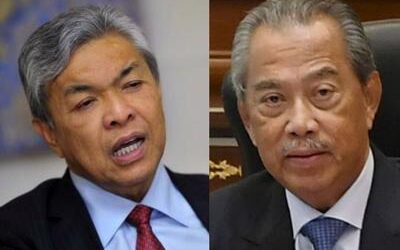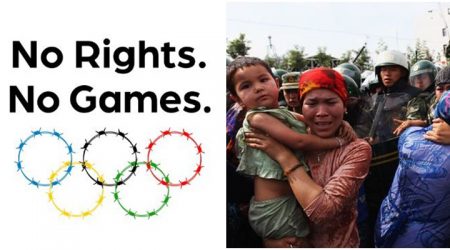Property tycoon bids to emerge from turmoil as Thailand’s leader
BANGKOK (Bloomberg): Srettha Thavisin, a former property tycoon and a political newcomer, is set to take a shot at becoming Thailand’s next prime minister in a vote scheduled on Tuesday that may help resolve a monthslong political impasse.
While backed by a coalition of populist and conservative parties, Srettha’s fate rests on the military-appointed Senate, whose 250 members vote in a joint assembly with 500 elected lawmakers.
Srettha came into the race after earlier premiership bids by Pita Limjaroenrat of Move Forward Party, which won the most popular votes in the May 14 election, was blocked by senators last month.
If successful, Srettha, 60, will form a government after months of political stalemate that’s gripped the South-East Asian nation.
Challenges awaiting Thailand’s 30th prime minister include a society deeply polarized by post-election turmoil, a fragile economic recovery and massive household debt that soared to a record during a near-decade of military-backed rule.
Who is Srettha?
He is a prime minister candidate of a coalition led by Pheu Thai, the party linked to ousted former premier Thaksin Shinawatra. A three-decade veteran in the real estate industry with an MBA from Claremont Graduate School in the US, Srettha joined the party this year as chief adviser to Thaksin’s daughter Paetongtarn Shinawatra.
Srettha led Bangkok-based Sansiri Pcl for decades before resigning as president and chief executive in April. He exited the luxury property developer by transferring all his shares to his daughter. He has also sold or handed over his stakes in other companies.
An avid soccer player and a fan of Liverpool FC in the English Premier League, Srettha was a driving force behind Sansiri Academy, which trains aspiring local players. The six-foot-three Srettha is married to Pakpilai Thavisin, a specialist in anti-aging medicine. They have three children.
Long before he ventured into politics, Srettha championed LGBTQ rights and environmental sustainability. Even before joining Pheu Thai, he would comment about politics on social media, unlike most Thai businessmen.
How did he become the top contender?
Despite a disappointing second-place finish for Pheu Thai in the election, Srettha is now a step closer to the top job. He was chosen by the party over Paetongtarn and former minister Chaikasem Nitisiri as the nominee of a new coalition after Move Forward failed to form a government.
Pheu Thai had backed Pita but Move Forward’s pledge to amend the royal insult law and other reformist agendas spelled a dead end for the young politician to win support from the pro-royalist Senate or the conservative parties.
While Pheu Thai’s alliance is now supported by 274 lawmakers in the House of Representatives, Srettha will need the simple majority of the 750-member joint assembly to become prime minister.
What if he fails?
Should Srettha fail to muster enough votes, Pheu Thai can nominate one of its two other candidates – Paetongtarn or Chaikasem.
Another scenario is for Pheu Thai to hand over the coalition leadership to Anutin Charnvirakul, the head of the pro-establishment Bhumjaithai Party that finished third with 71 parliamentary seats.
Also looming in the shadows is Prawit Wongsuwan, a former army chief and leader of the Palang Pracharath Party, which backed outgoing premier Prayuth Chan-Ocha in the 2019 election. Prawit enjoys considerable clout among the senators as he played a key role in their appointment.
What about allegations of tax evasion?
Chuvit Kamolvisit, a former businessman, alleged that Srettha was complicit in helping a group of people dodge taxes in 2019 when they sold a plot of land to Sansiri. Srettha has denied any wrongdoing and has filed a 500 million baht ($14 million) defamation suit against Chuvit, who has also accused Sansiri of other illegal land transactions.
While the allegations pose no immediate threat to Srettha’s ambition, he may come under scrutiny ahead of the PM vote.
What are his priorities?
In an interview with Bloomberg earlier this year, Srettha said he wants to stimulate the economy that’s lagging the growth of its neighbors and bridge the gap between the rich and the poor. He was the one to unveil Pheu Thai’s “digital wallet” scheme that would give every Thai who is 16 years old and above 10,000 baht each.
Srettha will also have to follow through with Pheu Thai’s campaign pledges such as a 70% hike in minimum wage, household income guarantee of 20,000 baht per month and tripling of farm profits to lift economic growth to 5%.
What are the challenges he will face?
The economy faces headwinds from a slowdown in China, which has hurt Thai exports, and a slow return of Chinese tourists. It’s also grappling with a long-standing problem of high household debt that’s more than 90% of the nearly $500 billion economy.
Srettha will need to balance the interests of the conservative and military personalities that continue to dominate Thai politics against the clamor of a younger voting base that’s only getting more drawn to Move Forward.
With Pheu Thai joining hands with a party backed by former junta leader Prayuth, who was responsible for overthrowing a previous Shinawatra-led government, Srettha must ensure his party’s base isn’t eroded. His government will also need to deliver on a promise to quickly rewrite the constitution to make Thailand more democratic.
How do investors view him?
Srettha and Pheu Thai are likely to be perceived favorably by investors, given their pledge to stimulate the economy through state spending. Policies such as cash handouts and minimum wage hike will be positive and a Pheu Thai-led government may help drive the stock market higher, Citigroup analysts including Kaseedit Choonnawat and Ferry Wong wrote in a report last month.
Pheu Thai also promised to cut electricity tariffs, push more free-trade agreements to attract foreign investments, and take steps to legalize gambling, which is likely to be lauded by investors.
Foreign investors have dumped about $3.8 billion of Thai stocks this year, triggering an almost 9% slump in the main stock index to rank it among Asia’s worst performers.
If elected as PM, Srettha must reassure investors that he can boost the economy and tackle structural hurdles holding up Thailand’s progress. He must also ensure that his government can withstand all the twist and turns of Thai politics. – Bloomberg













Leave a Reply